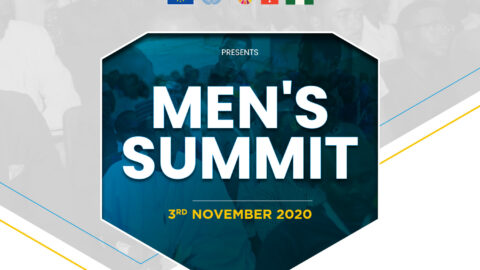By ‘Sola Fagorusi
 There are three things mankind cannot do without; they are ? food, clothing and shelter. This piece is interested in the first – food, especially since we still have discussions about ‘stomach infrastructure’ lingering in the air. In the last one year, for academic research purpose, I have gone back and forth some farming settlements for field work looking into the dynamics of effective agricultural communication through the use of new media technology. The findings have been revealing. It may be difficult to pitch new media use in agricultural communication usually offered by agricultural extension agent and other value chain actors given that agriculture belongs to the rural economy. What we nevertheless can’t also ignore is the humongous and upsetting effect of new media in this age. It is therefore rational to ponder if it can be co-opted to enhance food security issues same way it has been brought to the table in other industries. It is agriculture that sustains the poor who are mostly rural dwellers.
There are three things mankind cannot do without; they are ? food, clothing and shelter. This piece is interested in the first – food, especially since we still have discussions about ‘stomach infrastructure’ lingering in the air. In the last one year, for academic research purpose, I have gone back and forth some farming settlements for field work looking into the dynamics of effective agricultural communication through the use of new media technology. The findings have been revealing. It may be difficult to pitch new media use in agricultural communication usually offered by agricultural extension agent and other value chain actors given that agriculture belongs to the rural economy. What we nevertheless can’t also ignore is the humongous and upsetting effect of new media in this age. It is therefore rational to ponder if it can be co-opted to enhance food security issues same way it has been brought to the table in other industries. It is agriculture that sustains the poor who are mostly rural dwellers.
The bane of agriculture lies in its continual solo treatment as a development subject. Until it is consistently seen as more of a business enterprise than a social enterprise then today’s smallholder farmers will continue to battle with similar challenges that farmers of the 70’s and 80’s battled with. In some ways, I am not sure the challenges of agriculture in Nigeria have changed radically; they are perhaps still the same as the ones I listed in my primary class agricultural science notebook – poor road network, lack of infrastructure, poor extension services, etcetera. Any government keen on making huge impact, cannot ignore agriculture. In any economy in Africa, it is the only pro-poor sector. The incumbent government in Nigeria seems to recognise this hence the applause for its proactive approach to agricultural transformation.
On a continental level, it is said that 65% of global arable land is situated in Africa. Global arable land stands at about 1.4 billion hectares. For Nigeria, about 84 million hectares of the country’s total land mass of 92.3 million hectares is arable and only about 40% of this land area is presently cultivated. Nigeria has the largest chunk of the arable land in Africa as it currently places 9th position on the global ranking of countries with the highest mass of arable land. A road trip from one region in the country to another never fails to convince travellers about this empirical claim.
The farmers who have formed part of my research’s Focus Group Discussions (FGD) are not on Facebook or twitter or instagram. A mention of any of these would likely draw a blank from them. This is understandable given their level of digital literacy but they feed us all. They however own a tool which can be the starting point of having new media intrude productively into their farming space. They all own a mobile phone. They can make and receive calls and can also access text messages. Nigeria’s Ministry of Agriculture and Rural Development’s Electronic Wallet System is a good starting point in new media deployment in Nigeria. With it, electronic vouchers in form of text messages for fertilisers and seeds reach the farmers directly cutting off unscrupulous middlemen. The fertilisers and seeds do not serve the total farming need of the agrarians, it is however a system with potential to grow. The option of using English, Igbo, Yoruba, Hausa and Pidgin English for the transaction is also non-discriminatory allowing all farmers to participate.
Uganda, Rwanda and Kenya, Nigeria’s East Africa Anglophone neighbours have made remarkable progress in ensuring a nexus between new media and agriculture through the several ICT for Development initiatives available in these countries. Examples include the East Africa Exchange (EAX) Platform which aids transaction within the East African Community given the transparency of agro-product prices it aids; www.esoko.com is another example. It is used to collect and distribute market prices to smallholder farmers. Kenya based www.mshamba.net is also another bridge builder for farmers.
World renowned Grameen Foundation understands the importance of information to farmers and now leases smartphones to local farmers in Uganda so they can receive agricultural information that they also offer them. The M-Pesa revolution in Kenya is also a work of genius given how it serves both the rural and urban dwellers. i-Cow is another leading innovation, “it enables farmers to keep track of each cow’s individual gestation so farmers never miss the valuable opportunity to expand their herds and also keeps track of feed types and schedules, local veterinary contact information, and precise market prices of cattle.” The agricultural revolution is on in Africa, Nigeria which typically should lead the continent in new media deployment for agriculture on the contrary presently has a lot to from the East Africa Community and also rural Asia.
Last month, at a 2Scale training for Agribusiness Cluster Coaches, I met a lady who had relocated from Lagos to a rural community in Oyo to start farming tomatoes and pepper. I listened to her story and knew that while she has a high risk appetite there are thousands of other young people that would be willing to also trace and follow her footprint. There is however a lacuna. There are no comprehensive information and content about various farming practices in Nigeria. Where they are available, they are like those offered in our tertiary institution – majorly academic and devoid of the financials. Offering this comprehensive details and making them available online and shared on social media would add to the farming population in Nigeria.
Given the massive aptitude of Nigerian youths for new media technologies, it should be used as an attraction to bring more people into agriculture and mop the streets of unemployed youths. There is no time when agriculture needs to be given more attention in Nigeria than now. The insurgency in the North East where food production has been drastically affected needs to be balanced with more production in other parts of the country else we will become victims of a major food crisis. A new media deployment that is interactive and with localised information need will certainly enhance agricultural productivity in Nigeria.
_______________________________________________________
Sola Fagorusi is a youth development advocate, freelance writer, accomplished debater cum coach. The Obafemi Awolowo University graduate has about 10 years experience in social entrepreneurship which straddles leadership, good governance cum anti-corruption and adolescent reproductive health. The Leap Africa alumnus is also a trained peer educator, a DESPLAY alumnus and co-facilitator. For 2 years now, he has been a technical consultant and lead judge on the Intra-Faith Peace Youth TV Debate Project facilitated by Youngstars Foundation and the British High Commission. To read his full profile, click here.





